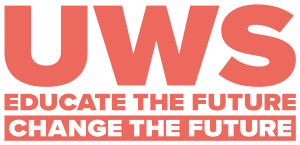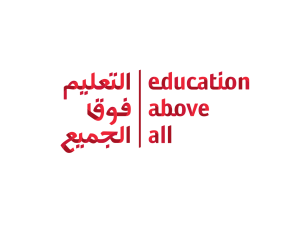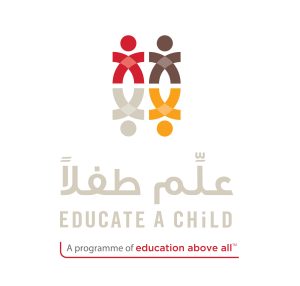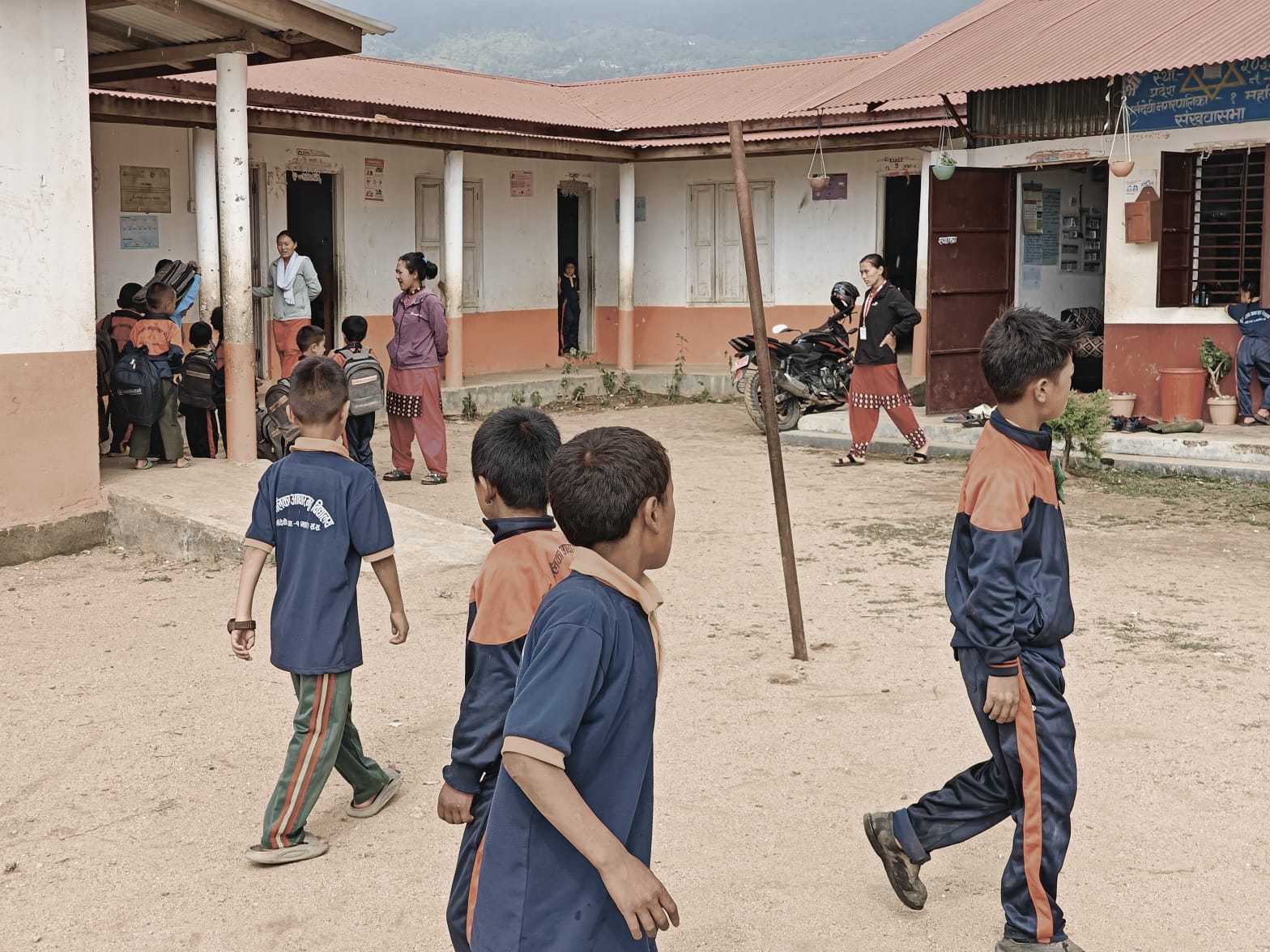Education is a critical foundation for individual and societal development, yet many children in countries like Nepal and Cambodia still face significant barriers to completing their basic education. The UWS and Education Above All’s Educate A Child (EAC) Drop-out Prevention Program (2021-2024) has been instrumental in addressing these challenges, working to keep marginalised children in school and supporting their educational journeys.
To assess the performance of the program, Rapid Asia gathered feedback through in-depth interviews with students, key informant interviews with representatives of the local governments, UWS, EAC and head of teachers as well as focus group discussions with participants and community members.
Addressing Barriers to Education
Poverty, gender, discrimination and rural settings are the most common factors that prevent many children from accessing and completing primary education. Despite the strong commitment from national governments to enhance school retention rates, these structural challenges continue to impede progress. The UWS-EAC Drop-out Prevention Program aimed to prevent dropouts among high-risk students in Cambodia and Nepal by designing interventions that support and retain students within the educational system.
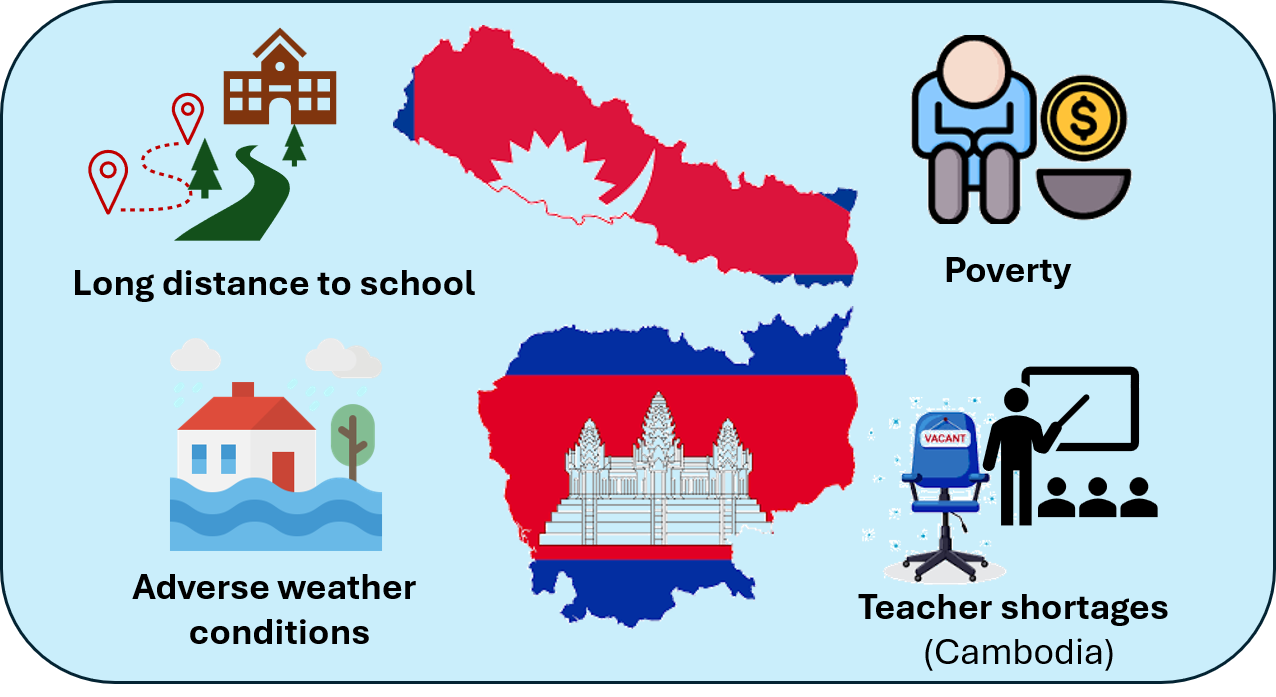
Figure I. Barriers to education
Effective Interventions and Community Engagement
The evaluation identified several initiatives that have proven successful in reducing dropout rates and improving educational outcomes. Providing essential resources like school supplies and uniforms, along with establishing Girls’ Clubs, Mothers Groups and home visits were found to have a significant impact. These initiatives not only met the immediate needs of students but also engaged the wider community in supporting education.
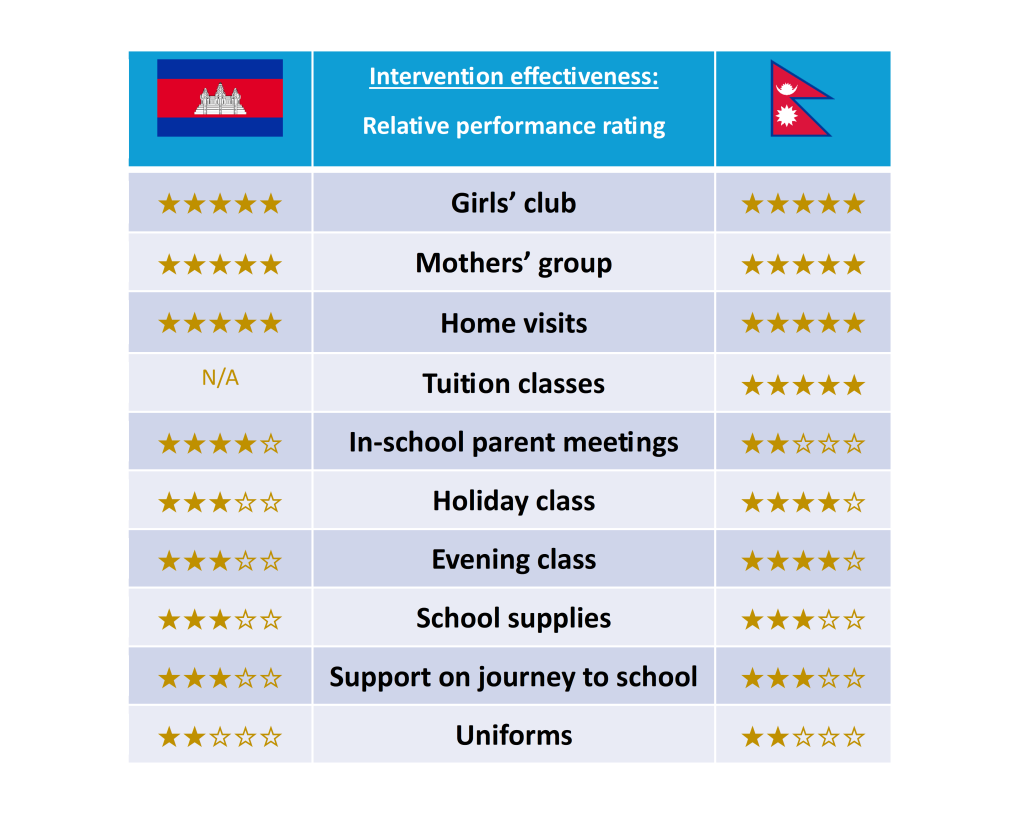
Figure II. Intervention Effectiveness of the EAC-UWS Dropout Prevention Program in Two Countries
A key strength of the program is its strong alignment with the priorities of the local government. By fostering strong relationships with government partners, the program ensured that its interventions were relevant and effectively implemented. This collaboration has been crucial in amplifying the program’s impact and sustaining its outcomes.
Efficient Use of Resources and Innovative Approaches
Efficiency has been a cornerstone of the program’s success. The innovative co-payment model for community teacher salaries in Nepal is a prime example of how resource constraints can be overcome through creative solutions. This model not only ensured the availability of sufficient teaching staff but also fostered community involvement in education. Such approaches could be replicated in other regions to extend program reach.
However, there are areas where efficiency could be improved. In particular, providing additional support for students who travel long distances to school and ensuring adequate resources for uniforms and school supplies are pressing needs that should be prioritised.
Impact on Impoverished Families and Female Students
The positive impact of the program was particularly notable among impoverished families and female students, who often face the greatest barriers to education. Targeted interventions like home visits, parent meetings, and community engagement and mobilisation have been successful in promoting school attendance and creating a supportive educational environment. Despite these successes, poverty remains a significant barrier, highlighting the need for ongoing support and targeted interventions.
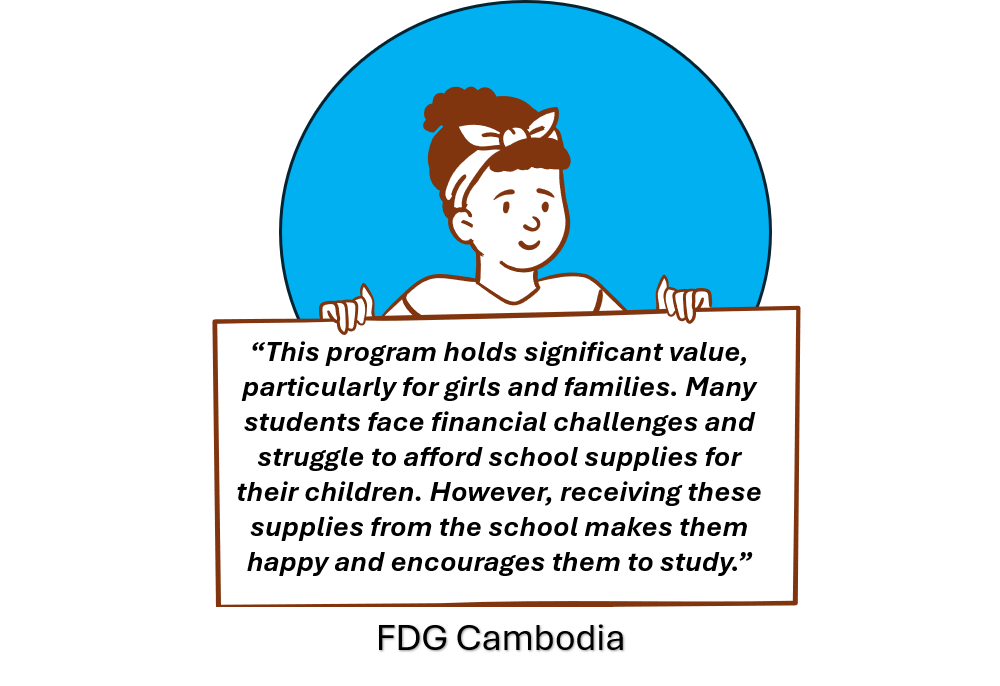
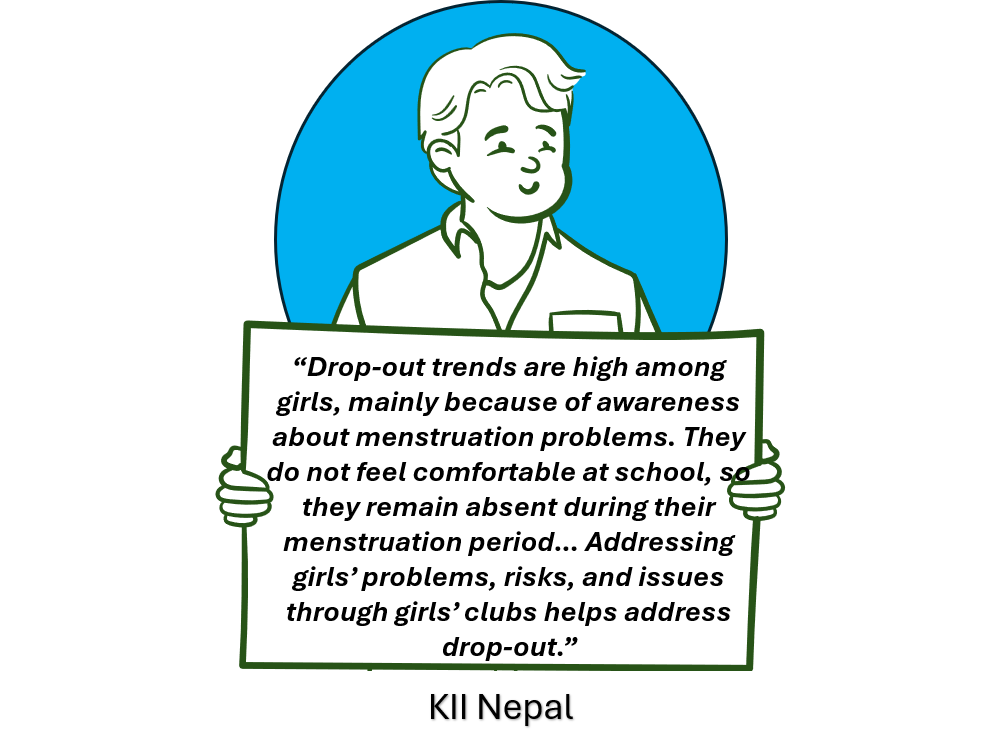
Recommendations for Sustained Impact
To sustain and enhance the program’s impact, several recommendations have been put forward, including:
- Maintain Program Structure: Continue the ecological approach of engaging stakeholders at all levels to influence school retention effectively.
- Strengthen Government Partnerships: Maintain and leverage relationships with local governments to align with their priorities and enhance collaboration.
- Continue Effective Initiatives: Persist with successful initiatives, including Girls’ Clubs, Mothers Groups, home visits, and material support provision.
- Support Student Commutes: Provide additional support for students’ commutes to address safety concerns and challenges during adverse weather conditions.
- Increase Resources for Uniforms and Supplies: Ensure that all students have the necessary materials to participate fully in their education.
- Encourage Local Government Replication: Support local governments in replicating or continuing successful program initiatives for sustained impact.
- Improve Flexibility in Budgeting: Enhance budget and project amendment processes to accommodate on-the-ground realities.
The UWS-EAC Drop-out Prevention Program has made significant progress in promoting school retention and preventing dropouts in Nepal and Cambodia. By focusing on effective strategies, community engagement, and government collaboration, the program has set a strong foundation for continued success. Sustained efforts and strategic enhancements will be crucial in expanding the program’s reach and ensuring that more children can complete their education and unlock their full potential.
If you found this article useful, please remember to ‘Like’ and share on social media, and hit the ‘Follow’ button to never miss an article.
About the authors: Daniel Lindgren is the Founder of Rapid Asia Co., Ltd., a management consultancy firm based in Bangkok specializing in evaluations for programs, projects, social marketing campaigns and other social development initiatives. Denise Erber holds a Master´s degree in Global Studies and is working with Rapid Asia as a consultant.
About UWS: UWS is an international non-profit that provides children in remote and marginalised regions access to quality, inclusive education. Learn more at: | Educate the future – UWS
About Education Above All Foundation: Education Above All Foundation empowers out-of-school children and marginalized youth by overcoming barriers to quality education. Learn more at: | Education Above All Foundation
About Educate A Child (EAC): Launched in 2012, Education Above All’s Educate A Child (EAC) programme helps millions of out-of-school children (OOSC) worldwide overcome barriers to primary education through partnerships and innovation. EAC plays a key role in improving access and retention for OOSC, driving positive change for children, their communities, and global sustainability. Learn more at Educate A Child | Education Above All Foundation
